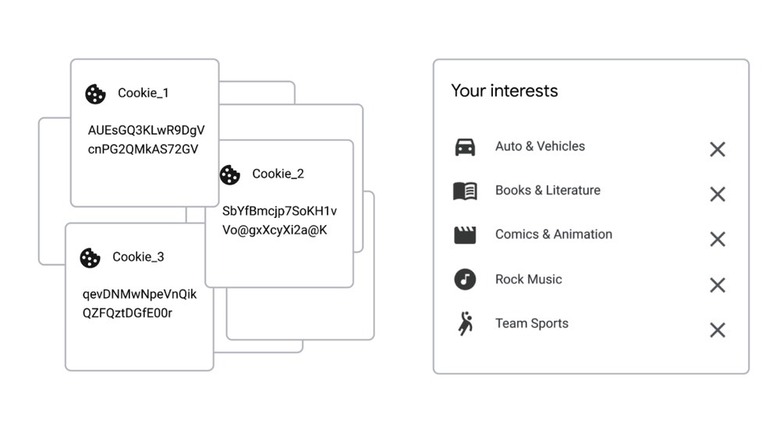Google Delays Chrome Third-Party Cookie Blocking To Late 2024
Google announced a couple of years ago that it intends to replace the third-party tracking cookies in Chrome with more privacy-friendly trackers. Google said at the time it that needed two years to phase out the tracking technology and replace it with an alternative that would be more private. But the company is nowhere near ready to phase out third-party cookies, having just confirmed a delay to late 2024.
Google Chrome Privacy Sandbox trackers
The internet giant has a tough job at hand. That much has been clear from the get-go. It needs to ensure that it delivers meaningful changes to Chrome so internet browsing is more private.
At the same time, Google still wants to track users online so it can make money from expensive targeted ads. This becomes a problem because Google will continue tracking users, especially when they're using its apps or internet services. Therefore, Google might hurt competitors by killing third-party cookies in Chrome without having a decent replacement in place.
Put differently, Google is at risk of angering policymakers and increasing pressure from regulators. Chrome's third-party cookie replacements should both improve user privacy and provide alternate tools for advertisers to track users.
Google has never considered an internet experience that doesn't involve tracking users. This is what privacy advocates have always criticized about the third-party cookie alternatives that Google has designed for Chrome. FLoC is one such solution that failed to get any traction. The tracking tech receiving plenty of criticism for not truly protecting user privacy. Google abandoned FLoC after the massive backlash.
When will Google remove third-party cookies from Chrome?
Google has detailed its third-party cookie replacement efforts under its Privacy Sandbox software. These tools are currently in testing. But it will take a while until Chrome ends support for third-party cookies and uses the new Topics feature to track users. Or, Google might end up using another solution entirely.
In a new blog post, Google said it needs more time to implement the switch. The company has been working with developers, publishers, marketers, and regulators on moving away from third-party cookies. Earlier this year, it reached an agreement with the UK's Competition and Markets Authority (CMA) on Chrome's Privacy Sandbox.
Google says the most consistent feedback it has received so far is that it needs "more time to evaluate and test the new Privacy Sandbox technologies before deprecating third-party cookies in Chrome."
The company will continue to test its new Privacy Sandbox features, with a broader expansion planned for August. Google says the Privacy Sandbox trials will expand to millions of users globally next month. Users will see a prompt that will let them decide whether or not to take part in the test.
Google expects to launch the Privacy Sandbox API in Chrome by the third quarter of 2023. But Google won't start phasing out third-party cookies in Chrome until about a year later, in the second half of 2024.

